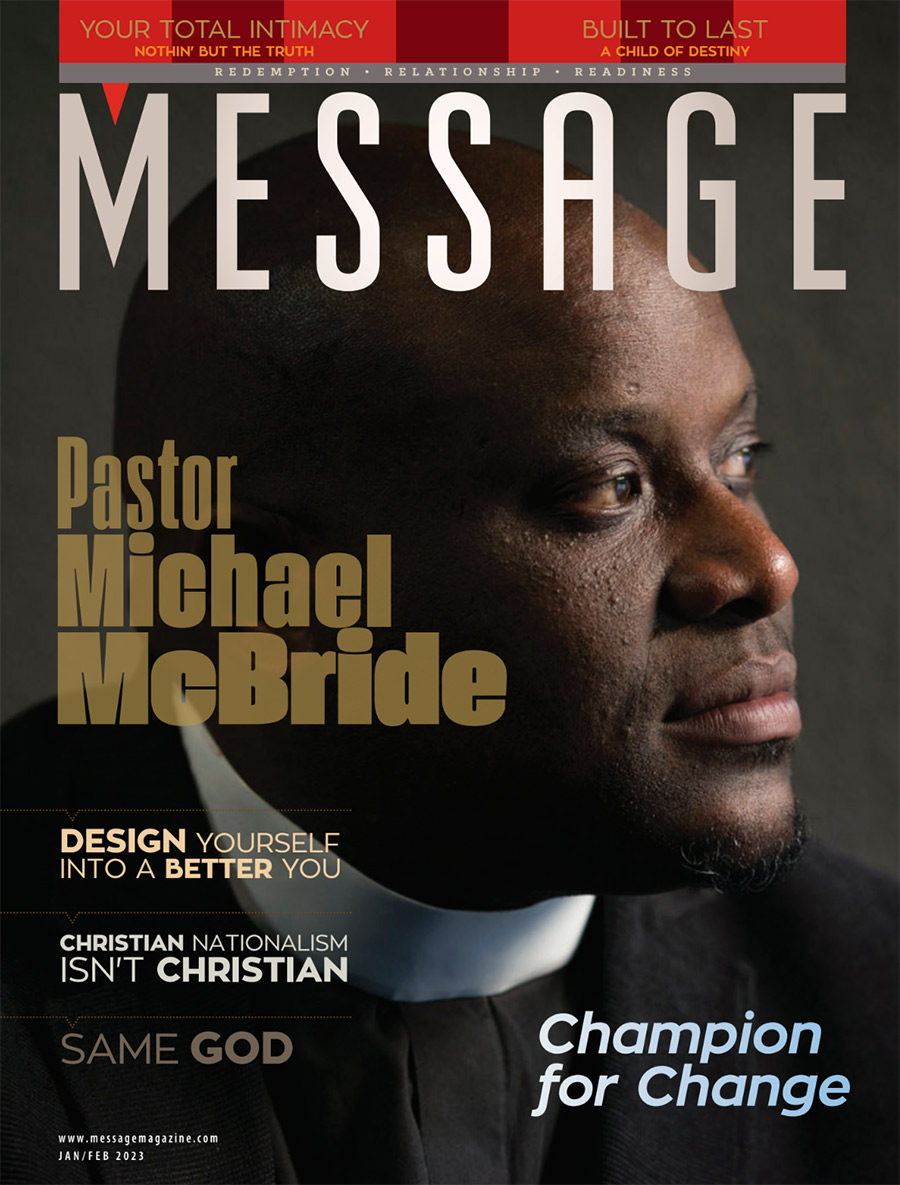MEDIA THAT TAKES YOU HIGHER
One Move at a Time
Montgomery Was Love in Action
Drs. Walter and Patricia Rodney International Black Power Activists
The Amazing Plant Power of Hispanic Cuisine
Lonely Days and Lonely Nights
The Business of Family

Editor
Carmela Monk Crawford
[email protected]
Graphic Design
Erica Keith
www.ericakeith.com

Pacific Press Publishing Assoc.,
Virginia Ramsey 1-800-456-3991
Advertising
Samuel Archer
[email protected]
Marvin Brown
Carlton Byrd
Virgil Childs
Byron Dulan
Garth Gabriel
Alva James-Johnson
Abraham Jules
Kenneth Manders
Michael Owusu
Calvin Preston
Marcellus Robinson
Calvin Watkins
Call 1-800-456-3991 Monday through Thursday 8:00 a.m. to 5:00 p.m. Mountain Time for subscription information or address changes. MESSAGE (ISSN 0026-0231) is published bimonthly Jan/Feb, Mar/Apr, May/June, July/Aug, Sept/Oct, Nov/Dec.
© 2018 by the North American Division of Seventh-day Adventists, 9705 Patuxent Woods Drive, Columbia, Maryland, 21046, U.S.A. Address editorial correspondence to MESSAGE MAGAZINE, 9705 Patuxent Woods Drive, Columbia, MD 21046-1565 U.S.A. All subscriptions are prepaid. If you did not order MESSAGE, it is being sent as a gift from a friend. You will not be billed. To subscribe, mail payment to MESSAGE, 1350 North Kings Road Nampa, ID 83687, U.S.A. or call 1-800-456-3991. Subscription price: one year, $19.95 U.S. currency; single copy, $4.00; overseas, add $10.00 per year for postage. Prices subject to change without notice. Periodicals Postage paid at Nampa, Idaho and additional offices. Vol. 89 No 5. September/October. POSTMASTER: Send address changes to MESSAGE, 1350 North Kings Road Nampa, ID 83687, U.S.A. Printed in the U.S.A.
Unless otherwise noted, Bible texts in this issue are from the New King James Version. Copyright © 1979, 1980, 1982 by Thomas Nelson, Inc. Used by permission. All rights reserved. Statements in this issue attributed by an author to other speakers/writers are included for the value of the individual statements only. No endorsement of those speakers’/writers’ other works or statements is intended or implied.


Vintage Vault
The Family History
That same message of hope extends down to this present generation. It is therefore important as you explore your family history to look for the evidences of God’s grace throughout the generations. As you recognize patterns of despair and futility it is imperative that you claim the promises of mercy and compassion, victory, and hope. God still possesses the ability to create order out of disorder. And there is no relationship, no matter how broken, that He cannot reconcile and harmonize as we trust His love.”
—”How Genograms Can Help Your Family,” by Linda Dulan,
In Message September October 1987
Phillip McGuire Wesley, jr.
Listen
Project 490
Chelton Thorpe and Laos In Harmony has released a powerful sophomore album since their debut project titled, “Pass The Test,” released in 2014. Laos In Harmony has unveiled singles like, “I Win,” “Not Yet,” and “Made It Through”; however, they have provided us with a full live recording that will take us into a time of worship and praise. This project focuses on forgiveness with the first song “490.” I am excited for this project as it will show the love of God to masses. You can download this from all digital platforms today.
editorial

For many of us, we exist on a string of crises and exigencies that knows no work stoppage. Rather than loading bikes and kayaks on the Subaru on Friday, we’re likely loading up the car to help move a relative from an evicted home, Harvey said. Or, we’re squeezing in the maintenance of a tenuous existence.
It would be funny, if it wasn’t so true. Or maybe it is funny because it is so true.
Take a page from urban Data Scientists and “Disaster Planners,” for example, where we can see that so many of us sit in life’s hurricane alley, literally and figuratively. Many among us, already experiencing wealth and income gaps, health disparities, and vulnerability to police misconduct, also live at the intersection of flood plains, wind and fire risk, and hazardous material sites or routes. We get no days off.

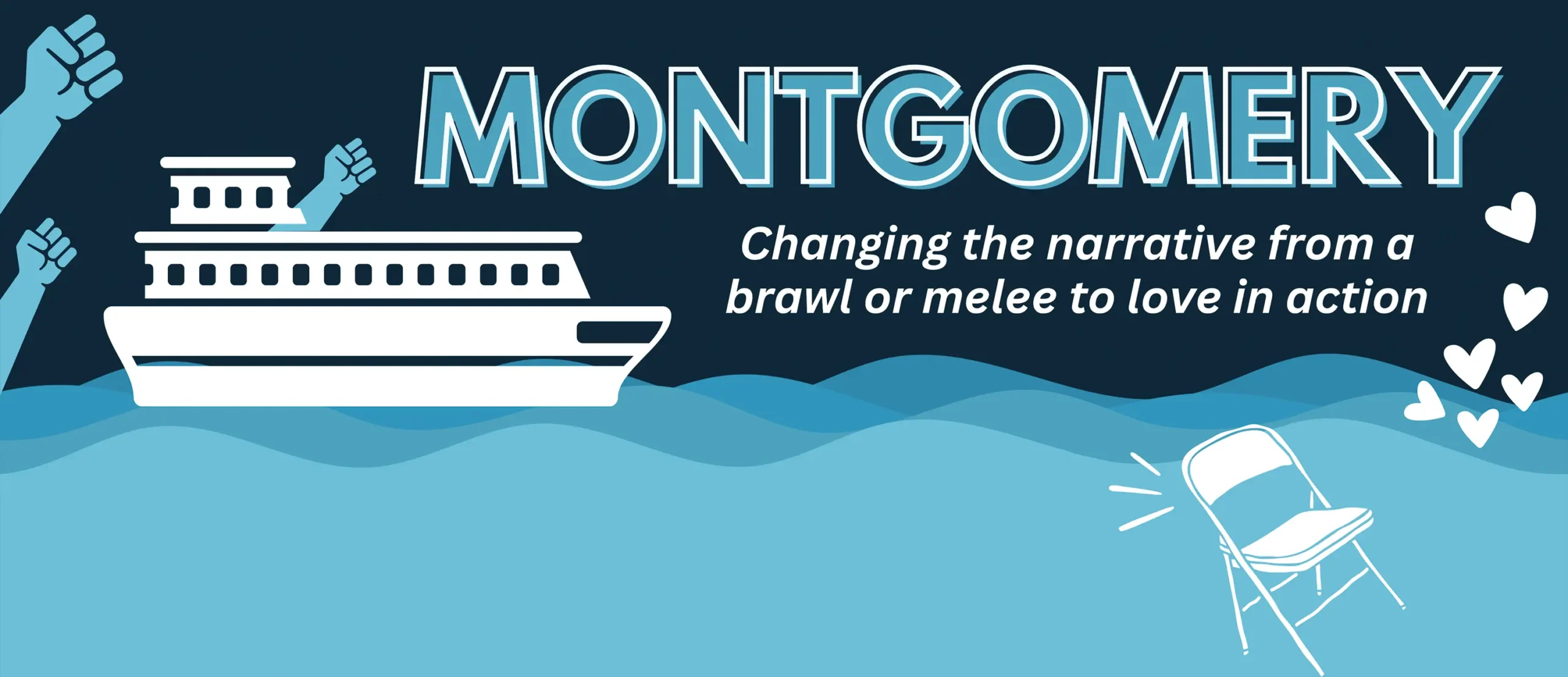
Dubbed the “Montgomery Riverfront Brawl” and “Montgomery Melee,” it started when a group of white, rowdy boaters failed to move their illegally docked pontoon boat for the return of Harriot II, a riverboat dinner cruise, on the Alabama River. When the black dock worker attempted to move the pontoon boat after approximately 45 minutes of repeated requests, he was attacked by the boaters. CNN reported that racial epithets were used, and witnesses believed alcohol may have played a factor.
However, no one is disputing that this incident could have been avoided. “They just didn’t think the rules applied to them. It was so avoidable. This never had to have happened,” a witness, Leslie Mawhorter, 52, who was aboard the Harriott II, said in an interview.

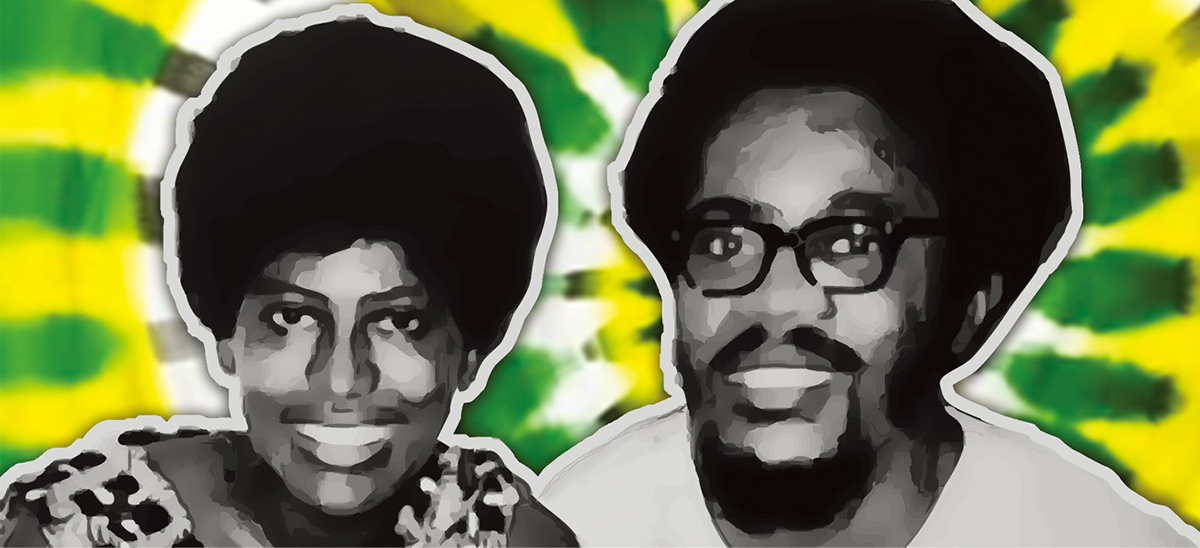
The University of the West Indies (UWI) followed that move with immediate dismissal of the Guyanese-born historian, professor, and activist. Dr. Rodney’s Caribbean version of black power was gaining popularity among UWI students, working-class people, and especially with Rastafarians. About 900 students, stunned by Rodney’s sudden banishment and firing, walked out of school and started marching. The crowd kept growing and flowing into the streets of Kingston, chanting “Black Power” until the next morning. Some burned buses and looted stores, triggering the police to respond with tear gas and multiple arrests.
By Donna Green Goodman
f the first thing you think of when you hear Hispanic Cuisine is Mexican food, I’ve got some news for you!
“Hispanic Heritage Month,” according to micfood.com, “is celebrated annually in the United States from September 15 to October 15 and explores the diversity of Hispanic cuisine. From Mexico to Central America, from the Caribbean to Northern and Southern South America, while a basic common language unites those cultures, the diversity within their customs, ethnicity, regional lingo – and their food – is quite broad.”
I discovered that what we eat in American restaurants is far different from what is actually consumed in the native culture.
I’ve also learned how valuable the plant ingredients are. Avocado, cilantro, and black beans form a phytochemical powerhouse that prevent and reverse health conditions.
and Nights
for Married
“Incels”
and Nights
for Married
“Incels”
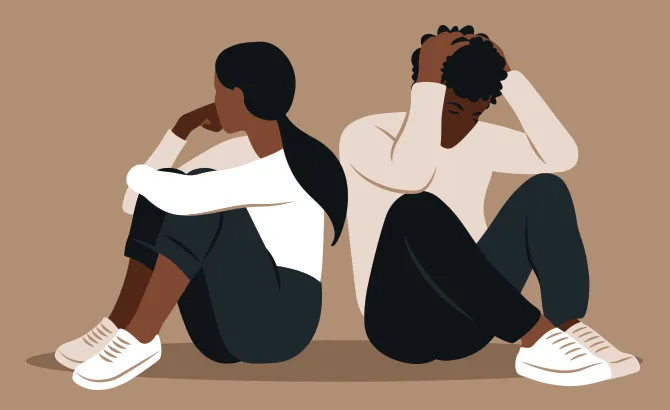

Yet, sadness and loneliness are regular features of many marriages, not to mention feelings of rejection—a silent marriage killer. According to the American Psychological Association, “[feeling completely dismissed] increases anger, anxiety, depression, jealousy and sadness.” Repeated patterns of rejection can develop into something very serious.
We were recently introduced to a new term to describe people who fall into this category. The term is “incel” or involuntarily celibate and describes mostly single “men between the ages of 18-25 who typically express extreme resentment and hostility toward those who are sexually active” (Merriam-Webster). Many of them have been hurt by women, which causes them frustration and feelings of failure. The years of rejection cause them to resent women. They have been known to meet online and discuss their extreme hatred and sometimes become violent because of it.
C.O.N.F.I.D.E.N.C.E.

n any of the 84 million families in the United States, it’s a sad sight to see family members who sign-off and tune-out, with resulting family drama and trauma getting out of control. While there may be mitigating circumstances, it’s always unfortunate. To make it personal, you may know of dysfunctional families or may be in one.
The gamechanger? It will take effort and commitment but with the right tools you can be a force for good in strengthening your family! But here’s the catch. If you’re not actively contributing to family bonding, chances are you may be part of the problem rather than the solution.
So then, how can you be a change agent for good starting today? In this special issue on the family, here are ten effective strategies you can implement with CONFIDENCE while expecting positive outcomes.


Nevertheless, drilling began in a desperate attempt to reach them, and against all odds, an exploratory drill miraculously punctured the small cavity holding the stranded miners. Now they had a lifeline of food, water, and light through this narrow borehole.
Sometimes, all it takes for people to keep going in life is just a little bit of light.
Some of us feel like we are buried under 2,300 feet of darkness due to our own personal cave-ins, our own personal crises. That was the case for the family of Wes Moore Sr.

An Interview with
Maryland Governor Wes Moore.

Photo by Joe Andrucyk. Gov. Wes Morgan with his daughter, Mia, son, James and the first dog, Tucker.
hen Maryland Governor Wes Moore set up a visit with the congregation of the Takoma Park SDA Church in Takoma Park Maryland, the meet up sealed a debt of gratitude. The 63rd Maryland Governor, and first black Governor, reaches back to the moments that his family and this church family sojourned together in a season of loss and pain.

hen Maryland Governor Wes Moore set up a visit with the congregation of the Takoma Park SDA Church in Takoma Park Maryland, the meet up sealed a debt of gratitude. The 63rd Maryland Governor, and first black Governor, reaches back to the moments that his family and this church family sojourned together in a season of loss and pain.
Photo by Joe Andrucyk. Gov. Wes Morgan with his daughter, Mia, son, James and the first dog, Tucker.
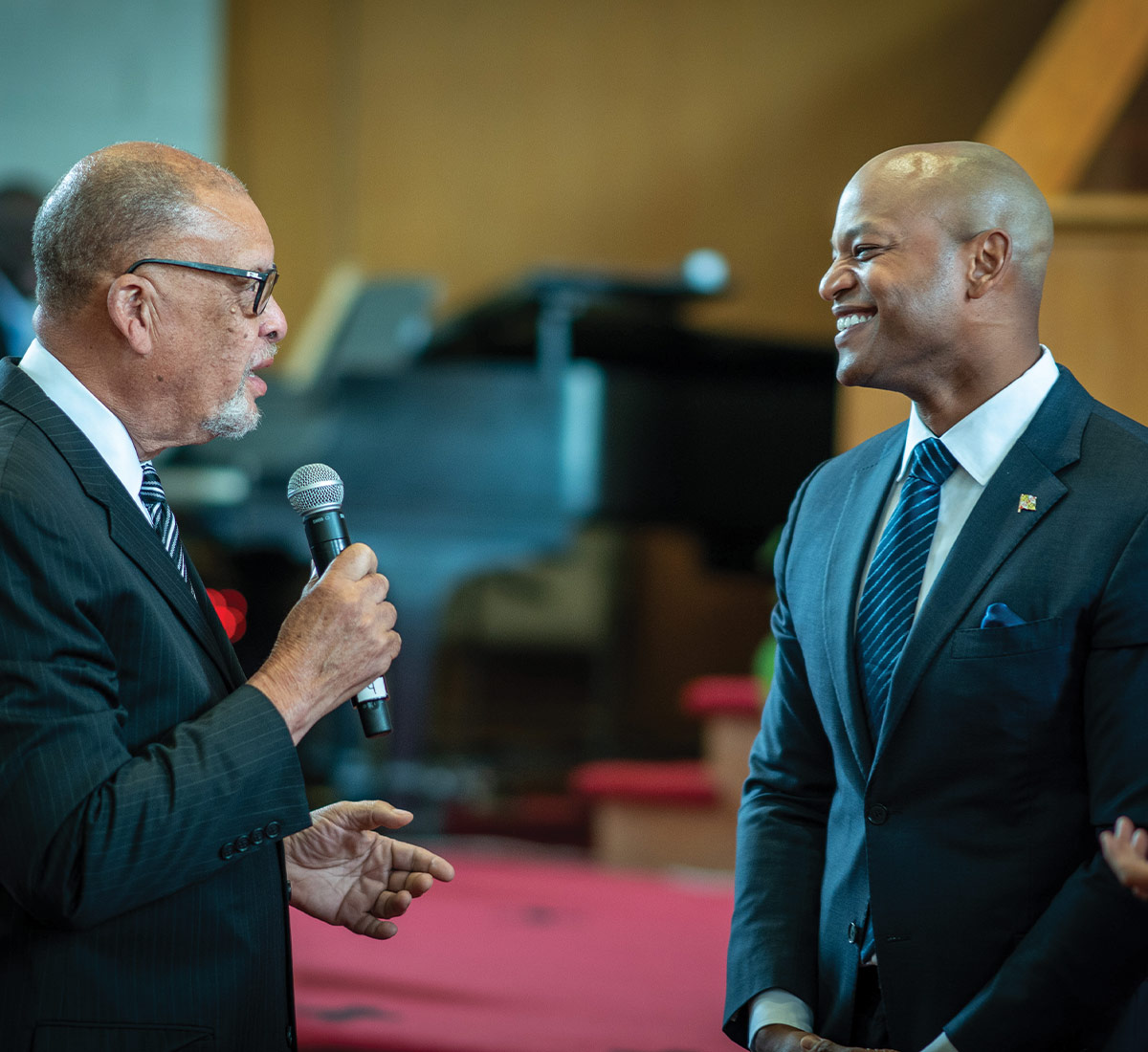
Photos by Art Brondo
MOORE: I remember the hole that my father’s sudden passing left in our family–one that my mom worked around the clock to try and fill. But I also remember the love we received from our community, including the church. Our entire family could lean on the support of the village. When I think about why I made the choice to serve, I’m brought back to that early tragedy in my life, when people came to our rescue without being asked, and delivered the help we needed. I’m proud to have served in the Army; I’m proud to have led one of the nation’s largest poverty fighting organizations; and I’m proud to have been elected the 63rd governor of Maryland. Those choices are emanations of the fact that I learned early on that acts of service can be the difference between overcoming tragedy and being consumed by it.





But, despite an hour-long plea for pain medication during the delivery, the mother said her cries were ignored.
Cole a nurse anesthetist did not intend to have a natural birth that day. She had experienced “a precipitous labor” with her first son, Carter, delivering the child after pushing for less than 30 minutes, she said in a recent interview. After that experience, the OB physician who delivered her first son recommended she arrive at the hospital early if she was ever pregnant again and inform the medical staff that she would deliver quickly.


Yet, the stereotype is undoubtedly false. Research shows that black fathers tend to display higher levels of engagement in their children’s lives than men of other demographic groups in similar parenting situations.
According to a 2013 Centers for Disease Control and Prevention report, black fathers with co-residential children are more likely than Hispanic and white fathers to bathe, dress, diaper and help their children use the bathroom, transport their kids to and from activities, and help them with homework. In another study conducted in 2011 by the PEW Research Center, researchers stated: “There are some differences by race and ethnicity in the likelihood of talking with their children several times a week about their day. … While almost half (49%) of blacks talk with their children several times a week about their day, the share of Hispanics who do so is 22%, and of whites, 30%.”

While a home with two loving parents is the ideal scenario for every child, many children live in circumstances where parents are separated for some reason, resulting in various living arrangements that can impact their emotional well-being. In 2010, The Pew Research Center conducted a study chronicling the trend that has developed over the decades.
“Children in America are growing up in a much more diverse set of living arrangements than they did a half-century ago,” researchers noted at the time.


hen COVID-19 rocked our world, healthcare, economics, business, and even how we communicate changed drastically in many ways. Disruptions in the United States educational system, in particular, revealed a trend that has been growing steadily over the years — more and more families are homeschooling.
According to the U. S. Census Bureau’s Household Pulse Survey, 5.4% of U.S. households with school-age children reported homeschooling in the first week (April 23 – May 5, 2020) of the survey. By the fall of 2020, 11.1% of households reported homeschooling.
“That change represents an increase of 5.6 percentage points and a doubling of U.S. households that were homeschooling at the start of the 2020-2021 school year compared to the prior year,” wrote Casey Eggleston and Jason Fields in an article published on Census.gov. “It’s clear that in an unprecedented environment, families are seeking solutions that will reliably meet their health and safety needs, their childcare needs and the learning and socio-emotional needs of their children.”
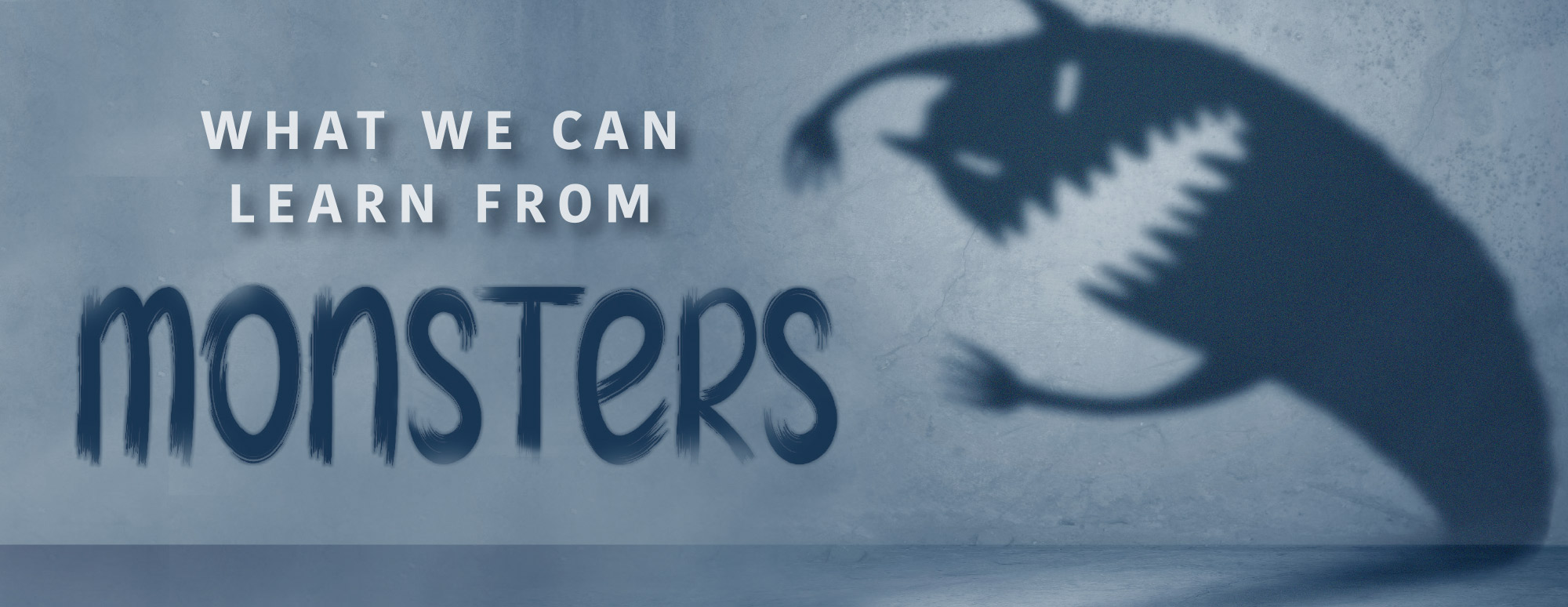
onsters have plagued humanity for millennia, always lurking in the shadows and dark corners of our civilized world. They are born from fears we have about the unknown. They are conquered when we either find out the true nature of something unknown or become familiar with things previously alien to us. They represent our anxieties, both as individuals and as societies.
Before popular culture, some of the earliest monsters to appear were drawn on maps of the world. Here we could see entire civilizations of “monster races” living on the outskirts of the known world. These “monsters” represented the xenophobic attitudes the civilizations that created them had against those who lived outside of their culture. As societies mingled and interacted, these depictions of each other as actual monsters slowly dissipated, but the idea of the “monster other” remained for centuries to come.
Even today, it is not uncommon for us to call the reprehensible actions of our enemies “monstrous.” Dr. Seth Pierce has taken the concept of a monster and turned it into a tool of academic and biblical study. In his “Monsters, Faith, and Pop Culture” class at Union College, and more recently his “Beast and Bible” podcast, Pierce encourages people to consider what monsters symbolize. From the horrors on the silver screen to the beasts within religious texts, monsters exist for more reasons than just to scare us.

remember when I was a child, I heard the most violent nursery rhyme that one could ever imagine.
On the tree Top;
When the wind blows,
The cradle will rock.
When the bough breaks,
The cradle will fall;
Down will come baby,
Cradle and all!
The bough broke first for us in 1980. I had just married the most beautiful woman in the world, January 26th of that year. My wife, Crystal, was pregnant with our first child. We had just accepted the Lord together as Seventh-day Adventists, bought a house down the street from her brother, Robert, and contemplated enrollment at Oakwood University.


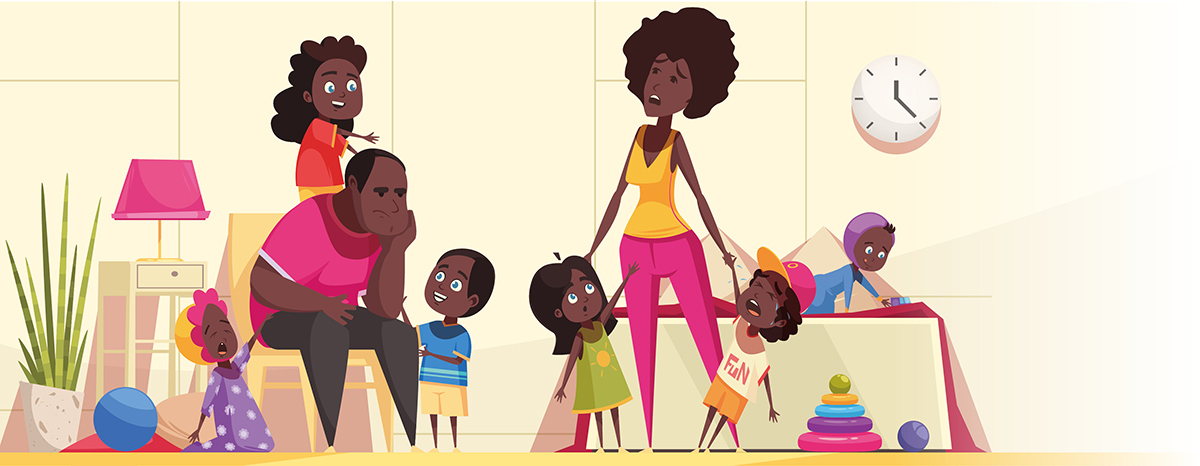

Like you, in our house, my wife and I went from coordinating our schedules to worrying about piano lessons on one side of town, sports on another, and homework and project deadlines. And although it’s easy for us to let certain things fall by the wayside because we get caught in the trap of constantly rushing to the next thing, I’ve realized that when dealing with family, that’s no way to live.
 Christopher Thompson
Christopher Thompson




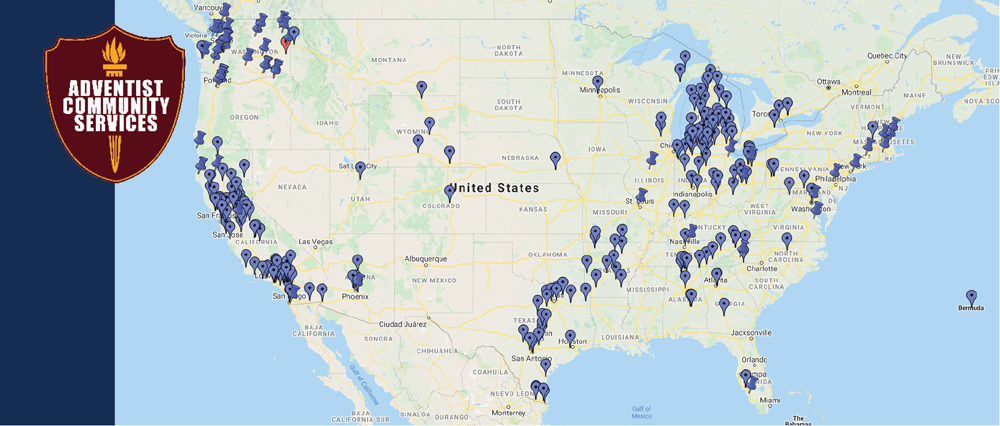
Atlanta, GA 30318
 404-799-7288
404-799-7288 http://atlantaberean.com/bomc
http://atlantaberean.com/bomc [email protected]
[email protected]

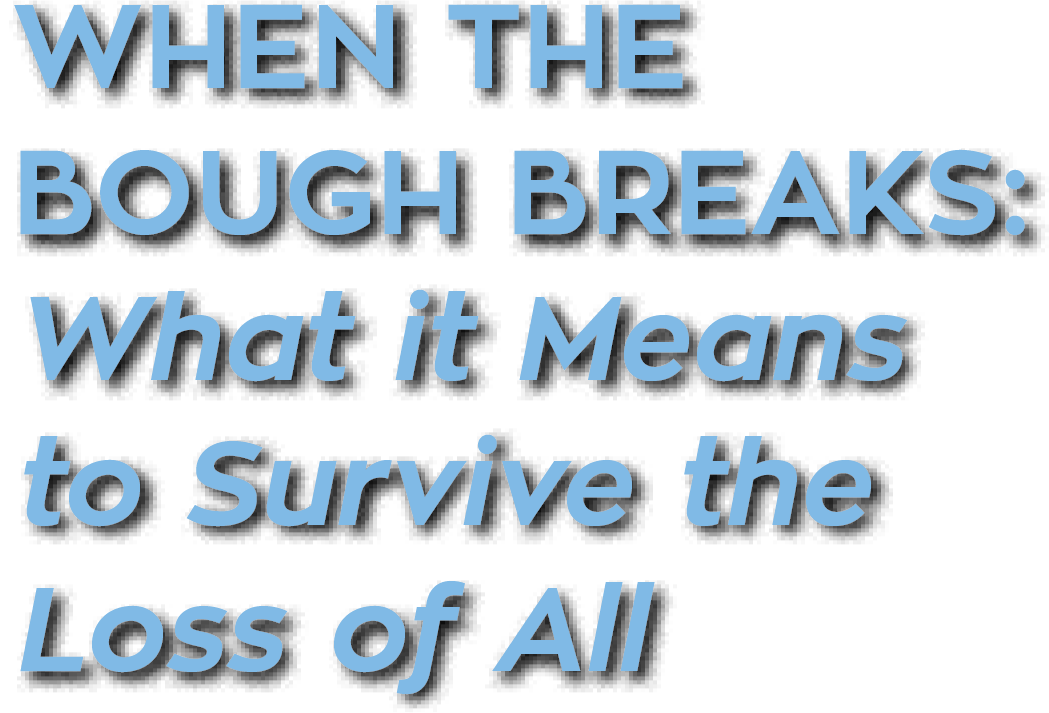
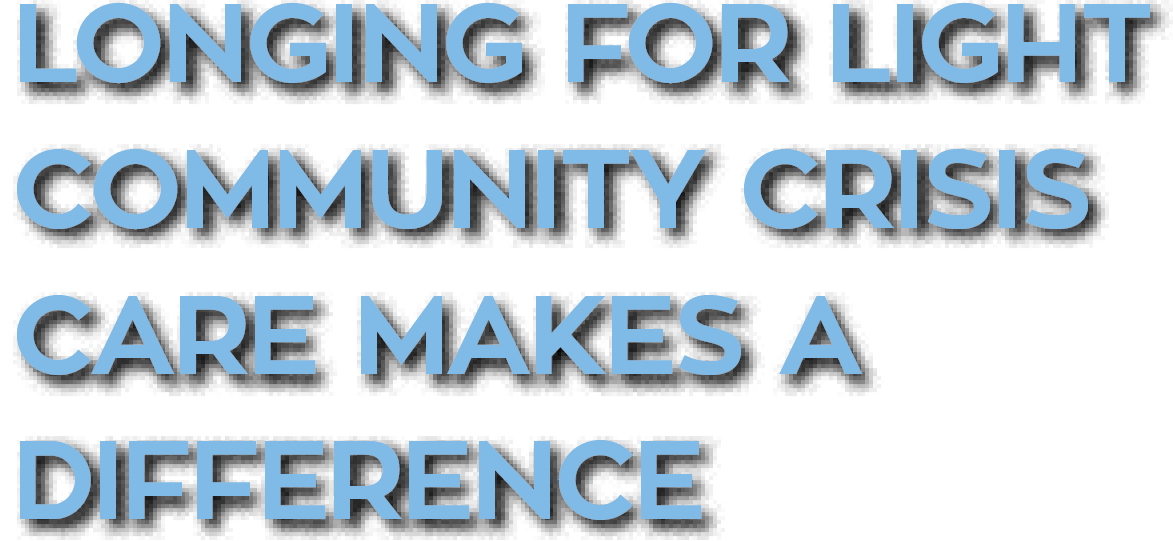
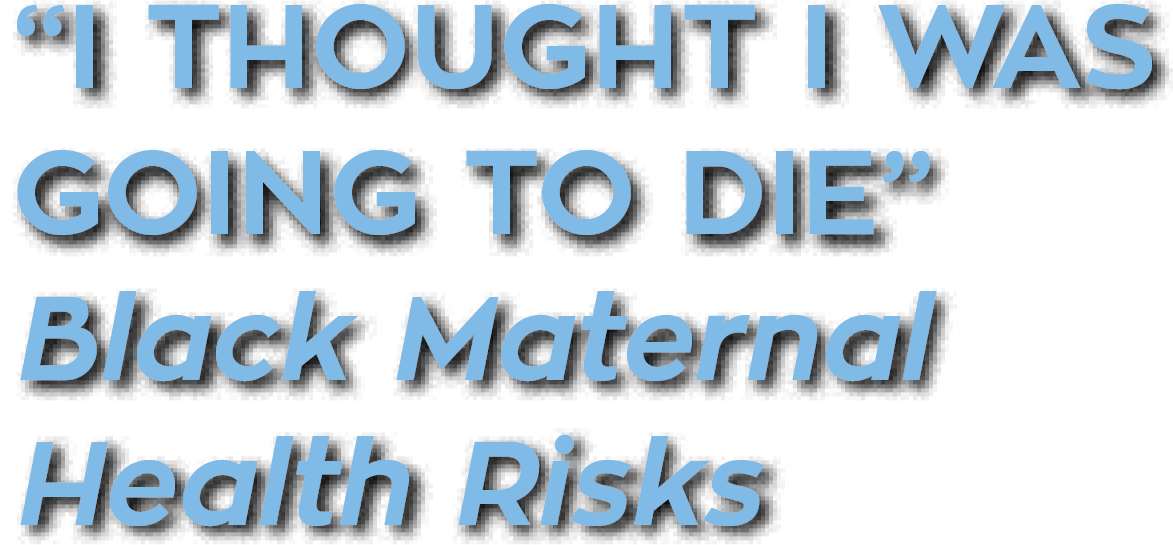


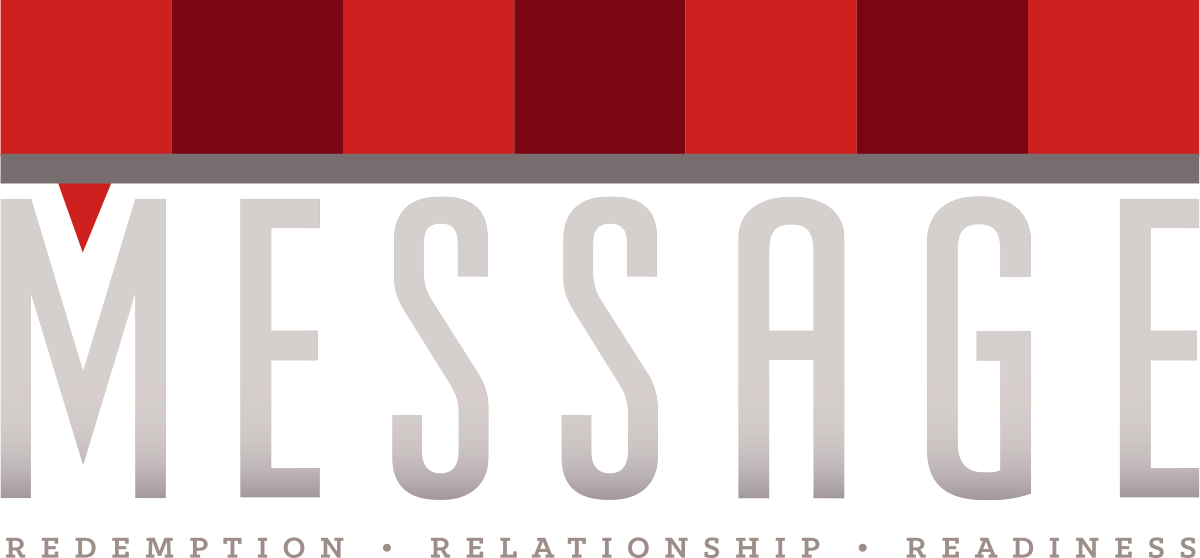


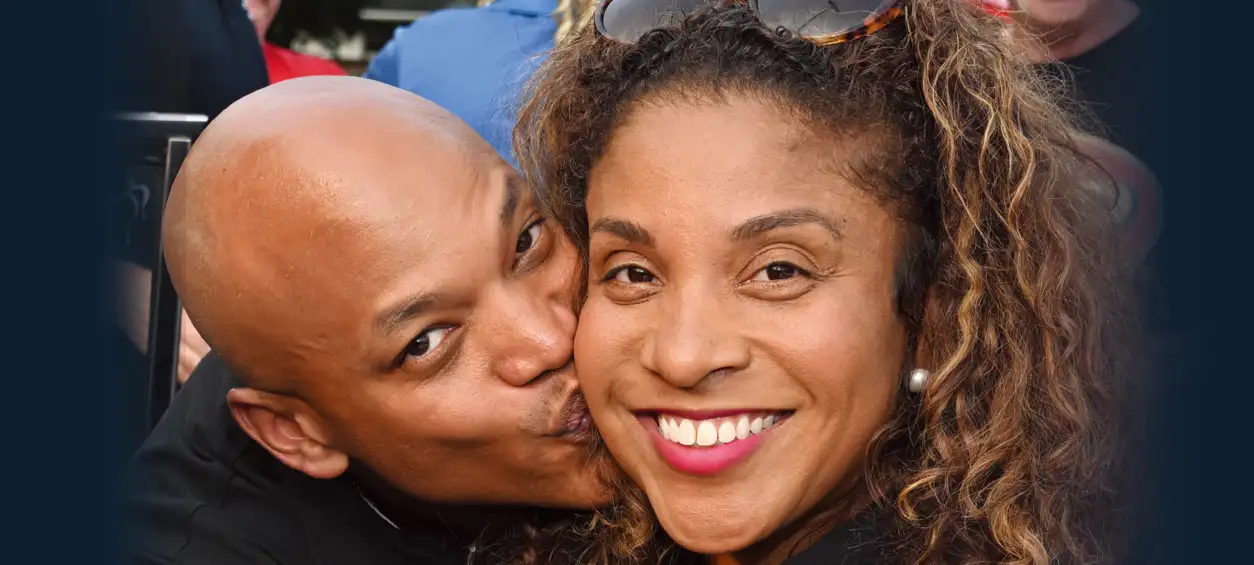




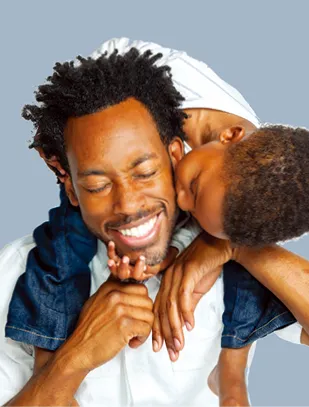
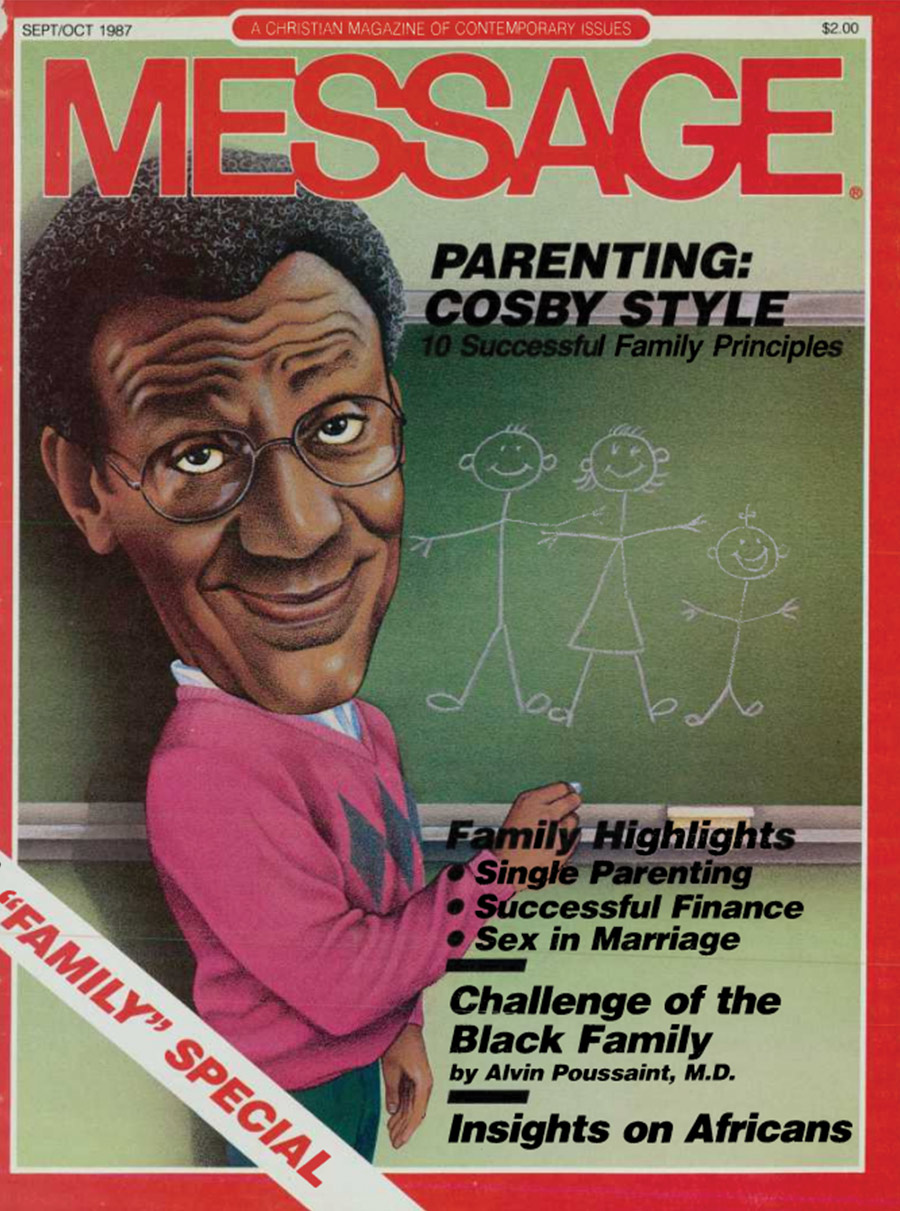
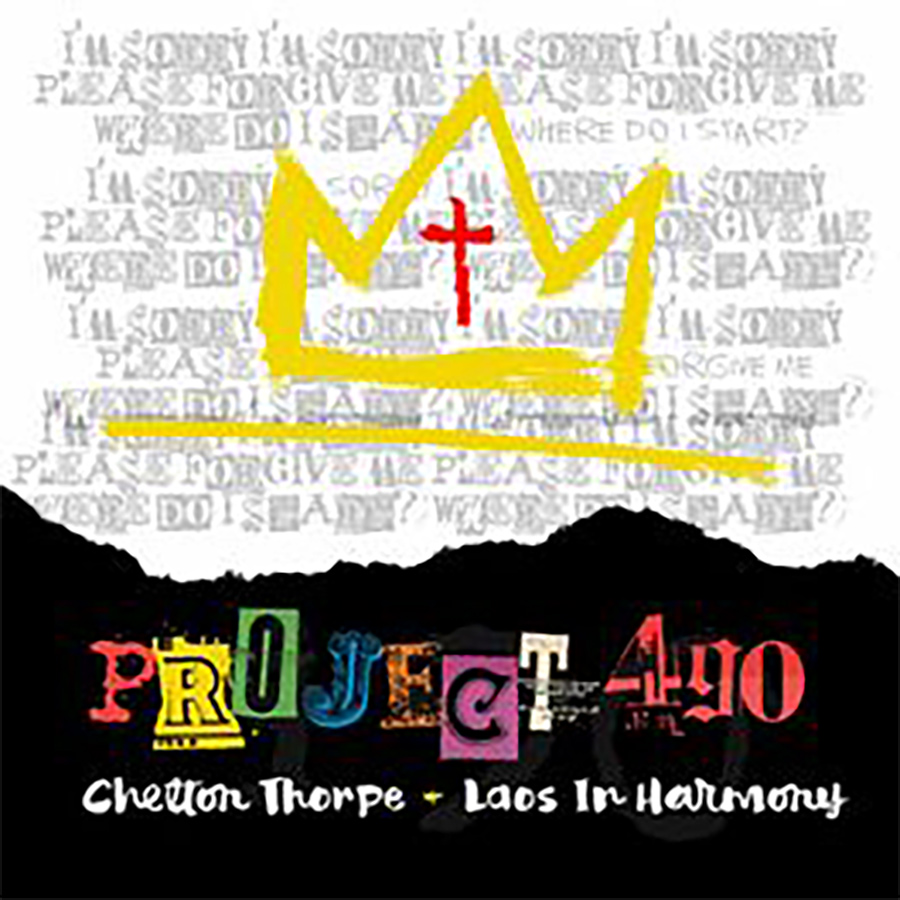

 YouTube
YouTube 